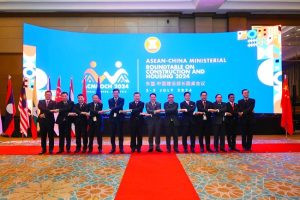The second ASEAN-China Ministerial Roundtable on Construction and Housing 2024 (ACMROCH 2024) that convened on July 4, 2024, in Kuala Lumpur, Malaysia, saw ministers and representatives adopt a high-level communique to implement sustainable urban development in ASEAN Member States and China.

The Roundtable was organised by the Malaysian Ministry of Housing and Local Government under the theme “Building Sustainable Futures: Deepening ASEAN-China Cooperation in Housing and Urban Development for Shared Prosperity”.
The first ASEAN-China roundtable was held in Nanning, China, in September 2023. Convened by the Ministry of Housing and Urban-Rural Development of the People’s Republic of China (MoHURD), its goal was to strengthen regional cooperation in housing and urban-rural development and explore opportunities towards strengthening development cooperation to synergise common priorities. The parties agreed to continue the initiative and now look into organising annual meetings between housing ministers of the ASEAN countries and China.
“Housing and urban development constitutes an important area of economic and social development. In recent years, China and ASEAN countries have achieved remarkable progress and results in this area through pragmatic cooperation,” said Chinese Minister of Housing and Urban-Rural Development Ni Hong at the ministerial meeting in Kuala Lumpur. “We should uphold the concept that ‘cities should be built by the people and for the people,’ and taking the satisfaction of people’s need for housing as a starting point for ensuring people’s well-being.”
Housing, climate change, sustainable urban planning, harmonisation of policies and smart use of technology for the benefit of people and communities were identified as priorities by the attendees.
“One of the key takeaways from this meeting is the recognition of the interconnectivity of urban development challenges across borders. Issues such as housing affordability, resilient infrastructure development, climate change and environmental sustainability, and social inclusion are ubiquitous concerns that transcend national boundaries,” said Nga Kor Ming, Minister of Housing and Local Development of Malaysia.
“By acknowledging these shared challenges, nations can leverage on regional cooperation to craft innovative solutions that are tailored to the specific needs of different regions while drawing on collective knowledge and experiences,” added Ming.
Among priority areas and collaborative actions, ASEAN Member States and China mentioned efforts to accelerate the implementation and reporting on the New Urban Agenda, a comprehensive framework on the “how” of sustainable development.
The Kuala Lumpur consensus communique reads: “We will accelerate efforts towards the implementation of the SDGs and adaptation of the New Urban Agenda through multilevel governance, multi-stakeholder’s participation and regional cooperation towards realising the transformative commitments for sustainable urban development in ASEAN Member States and China. We welcomed the establishment of the New Urban Agenda platform for ASEAN and the wider Asia-Pacific region that aims to help Member States prepare and submit timely reports on the implementation of the New Urban Agenda.”
